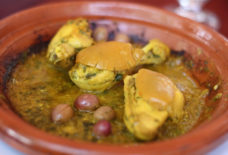Was Prince William's Famous Trip to The Middle East Political?
By: Emiliya Strahilova/Arab America Contributing Writer
Prince William just ended his visit to Jordan, Israel, and Palestine. His trip is considered to be historic by the world because it was the first time a member of the British royal family stepped onto Israeli/Palestinian lands. Even before he started packing his bags, he was already judged by Israeli officials and influencers for calling the Palestinian lands “occupied territories.” It was never a secret, though, that regarding the conflicts in the region, Britain supports a two-state solution.
According to the Palestinian people, Jerusalem would be the capital of their future state, but this concept was challenged by Trump’s decision to move the U.S. embassy in Israel from Tel Aviv. As a result, Israeli Minister of Jerusalem affairs Ze’ev Elkin said that Jerusalem has been Israel’s capital for the last 3000 years and appealed to Prince William not to politicize his visit. While Kensington Palace insisted that the royal Middle Eastern tour was not political, the Prince’s task was to prove that would be impossible. First, the Duke of Cambridge strengthened the ties with once controlled by Britain, Jordan, and Israel, and then, he met with the Israeli and the Palestinian Presidents on the 70th anniversary of Nakba by coincidence.
Prince William arrived in Jordan on Monday and was warmly welcomed by another Prince – Hussein bin Abdullah. The highlights from the first day of the royal journey were Prince William watching the soccer game and also recreating a photograph of Kate Middleton when she was a child living in Amman. Apparently, he also had time in his busy schedule to walk through archeological sites, meet local tech students, and speak with Syrian refugees. Today Syrians who seek shelter make up to 1 million of the Jordanian population. This is how Jonny Dymond, BBC royal correspondent, characterized the Prince’s first appearance in the Middle East: “This was the “safe” part of this trip before the duke moves to more politically sensitive lands. Wherever he could Prince William went out of his way to meet not just the country’s leaders but the country’s people – children, refugees from Syria, women who have worked together to make life better. Britain has strong ties with Jordan and their respective royal families have been friends for decades. Part of the plan was to strengthen those links.”
Prince William’s #Jordan/#Palestine/#Israel trip will bring much-needed attention to issues many have forgotten. Good to see he highlighted #Jordan‘s refugee credentials, though worth remembering that re #Syrian refugees no one has done more than #Turkey https://t.co/Q9M061MqG9
— Diana Darke (@dianadarke) June 25, 2018
The next stop for the royal visitor was in Tel Aviv. He had an official meeting with Benjamin Netanyahu and his wife and took pictures with them. In a far more interesting stop, Prince William honored his great-grandmother’s grave. Princess Alice once saved a whole Jewish family, and for that she was dignified by the Jews and called Righteous Among Nations. Later on, he showed respect for the Western Wall and the Holocaust victims. He even found time for bonding with Eurovision winner Netta Barzilai. After this, Prince William headed to his meeting with Israel’s president. Here the President of Israel Reuven Rivlin dropped a bomb – he asked the Duke of Cambridge to send a message of peace to the Palestinian President. This was interpreted as a sign of recognition for the Palestinians, but many of them were quite skeptical about Rivlin’s sincerity.
#TheresaMay has said that #UK and #Israel share common values. We do. We gave them British Mandatory Emergency Regulations that denied #Palestinians any basic human or civil rights, bulldozed homes, ‘administrative detention’ etc etc. We now supply them with sniper’s rifles etc
— David F W Webster (@Websterdfw) June 26, 2018
Prince William expressed solidarity with all kinds of efforts for peace and went on to meet the Palestinian President Mahmoud Abbas. He delivered the message from Rivlin but called Palestine a country. For a second time, he used an “inappropriate” notion that was not to everyone’s taste. He also said to Abbas: “The UK stands with you.”
Meeting with Palestinian president Mahmoud Abbas, Prince William referred to our “two countries”. That won’t be popular with parts of Israeli govt…
— Joe (@joedyke) June 27, 2018
For the end of his trip, the Prince left Ramallah and he went to a Refugee camp, where he met students and saw how the ordinary people there live.
Thank you to the people of Ramallah for the lovely reception for The Duke of Cambridge today! pic.twitter.com/URJoaAq0CY
— Kensington Palace (@KensingtonRoyal) June 27, 2018
Overall, Prince William made an excellent impression in all of the places he went to. He showed confidence and integrity but he could not escape from being in the heart of a political issue. He attracted attention and most likely improved Britain’s business and cultural relationships with the Middle East. Almost everyone was happy to have him on their side.
Prince William’s visit to Israel, Jordan and the Palestinian terriroties has been a PR masterstroke.
He’s met real people, politicians and got a taste of real life – but i don’t think he gives off a feeling of ‘I’m from a country that used to run you’. — Jack Mendel (@Mendelpol) June 27, 2018









